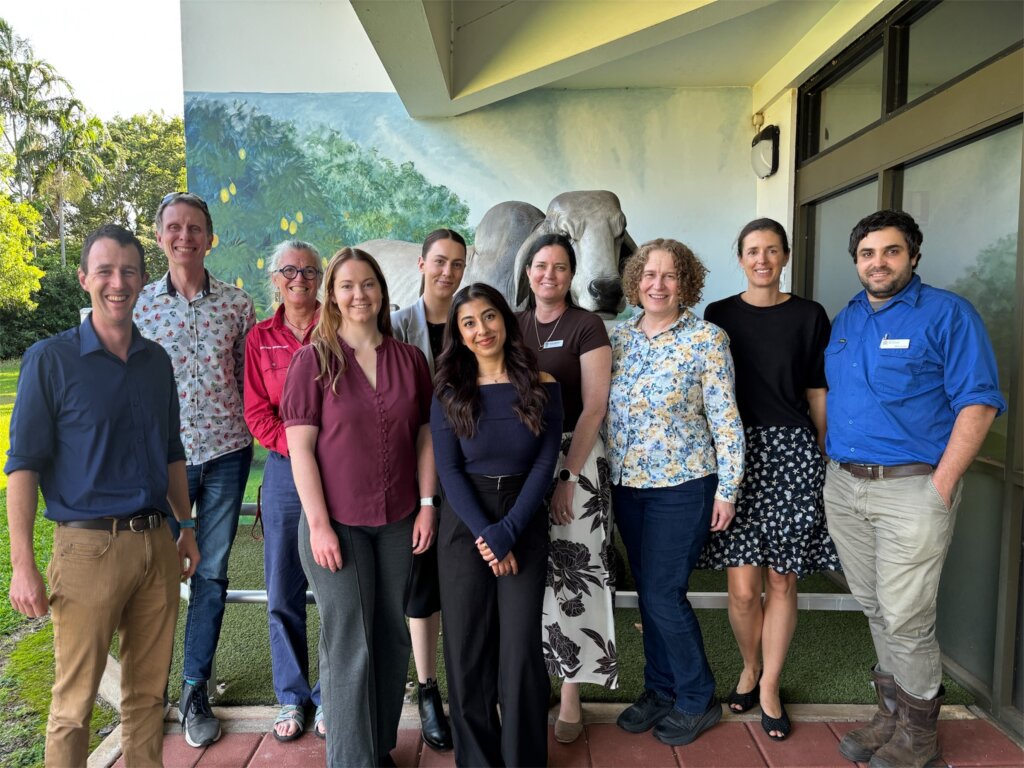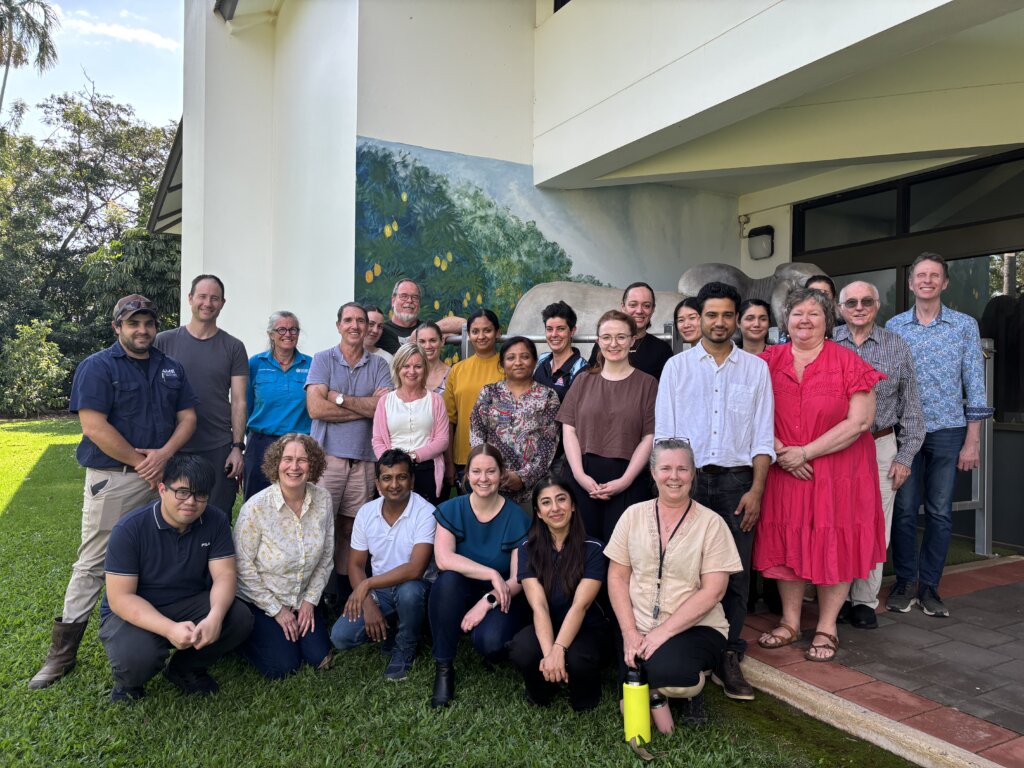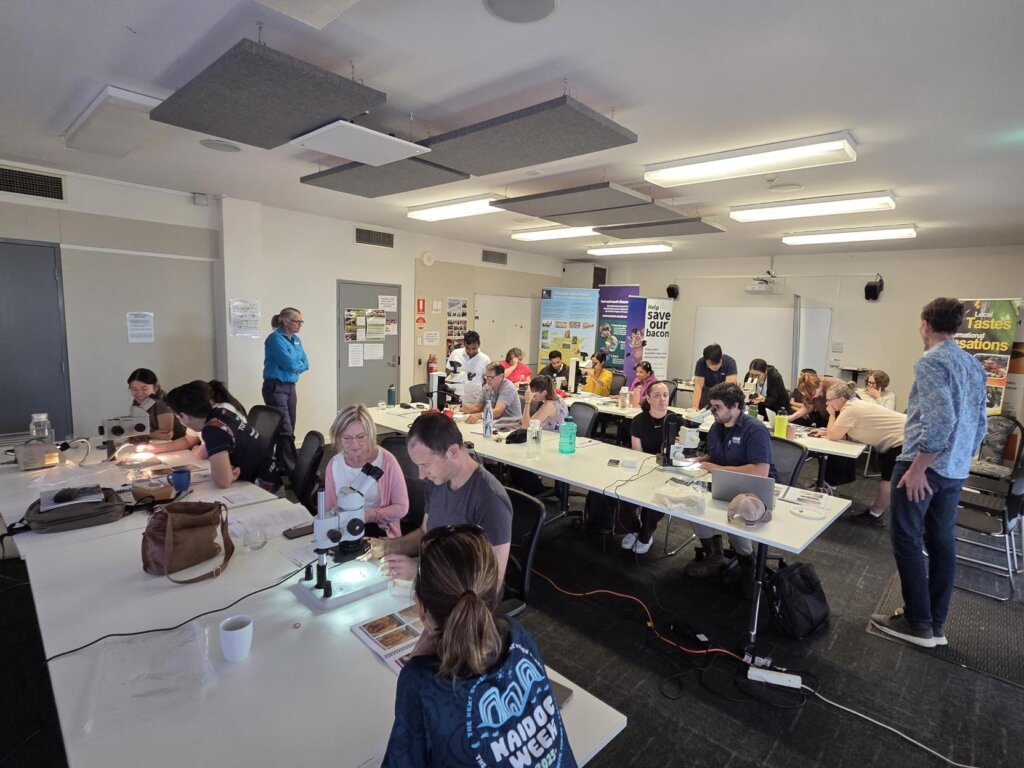
On 9 September 2025, biosecurity experts from across Australia gathered at Berrimah Farm in Darwin for the annual meeting of the Screw-Worm Fly Surveillance and Preparedness Program (SWFSPP). The gathering provided an opportunity to reflect on the past year, share insights, and plan ahead to keep Australia free from screw-worm fly (SWF) — a pest we never want to see on our shores.
The Steering Committee reviewed trapping and myiasis surveillance efforts across jurisdictions, discussed Australia’s SWF risk profile, explored changes in the international distribution of SWF, and mapped out future initiatives to strengthen national preparedness.
The event coincided with the triennial SWFSPP entomology workshop, which drew more than 20 entomologists from the Northern Territory, Western Australia, New South Wales, and the Northern Australia Quarantine Strategy. Led by the program’s reference entomologist, the workshop focused on identifying SWF and similar fly species, with practical training and updates on surveillance activities.
The feedback was clear:
- 100% of attendees found the workshop relevant and useful
- 92% felt confident in identifying SWF or knew who to contact for help


What’s the big deal about screw-worm fly?
Screw-worm fly is a nasty pest that targets warm-blooded animals including livestock, wildlife, and even humans. It causes myiasis, a condition where fly larvae infest and feed on living tissue. If left untreated, it can lead to severe wounds and even death.
There are two commonly known screw-worm flies:
- Old world screw-worm fly (OWS) – Chrysomya bezziana
- New world screw-worm fly (NWS) – Cochliomyia hominivorax.
Thankfully, SWF is not present in Australia, but it does exist in nearby countries to our north. That’s why early detection and rapid response are so important.
Managed by Animal Health Australia, the SWFSPP is our frontline defence against screw-worm fly. The program includes:
- fly trapping and livestock wound surveys
- entomology training and resource development
- monitoring of regional risk profiles
- awareness campaigns to encourage reporting of suspected cases
Learn more about the SWFSPP
Whether you’re a vet, farmer, entomologist, or just someone who cares about animal health, you can play a role in protecting Australia. Stay informed, report unusual wounds with maggots, and spread awareness about screw-worm fly.